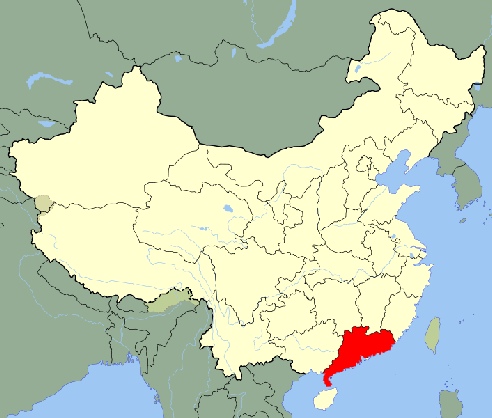

How did our ancestor get there?
Following was the story my father told me. We are the Han people. Our small toe
nail has a small split in it. Our babies usually have a blackish gray patch of color
on the lower back area when they are born but disappears when they are couple of
years old. Some doctors are not aware of this and might report this observation
as child abuse to the police. A few hundred years ago our ancestor came from central
China. They traveled through a place called Nan Shong. This still is a city at
the border between the province of Guangdong and Jiangxi . Why did they have to
relocate? I was told that one of the concubines of the local Lord (*) ran away with
her lover. As a result, the local Lord sent out soldiers looking for them. Our ancestor
and his wife had to run away from that place. It was not clear why they had to run.
They ran south and went through the city Nan Shong. Sometime after they started,
they consulted a fortune teller. The fortune teller told them to take along with
them a roaster. They should settle at wherever the roaster croaked the first time.
They continued their journey. They reached a little island in the middle of a tributary
of the Pearl River -
(*) In the old days, the Emperor of China gave a certain region to a member of the royal family or a person who had made significant contributions to the empire such as successfully suppressed a rebellion, or conquered a barbarian tribe. The person became the local Lord and administer of the region. The Lord collects taxes, sets laws and treats the region as his own little kingdom. Of course, he has to make tributes to the Emperor of China regularly, usually annually and on the Emperor’s birthday etc. The position is hereditary and usually to the eldest son.